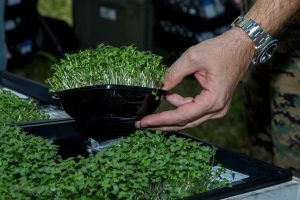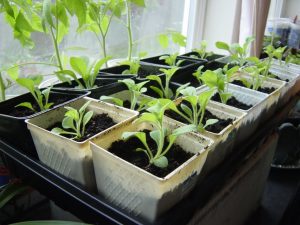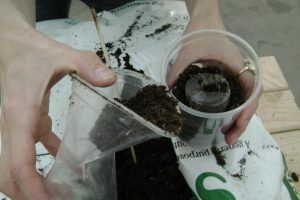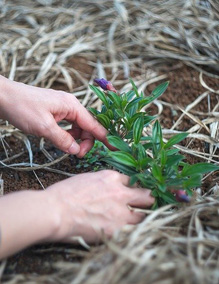Your garden has the potential to be more than just a hobby. With the right approach, it can become a source of side income. Here are various ways your green space can help you achieve that.
1. Microgreens

Let’s start with something simple that you can do throughout the year, even with a small garden space. Microgreens, which are basically plant seedlings, can be surprisingly profitable. You can sell them in local markets or restaurants.
For instance, one tray of radish microgreens can sell for £20 to chefs and home customers. The potential profit is around £18 per tray, as estimated by the Farm Microgreens UK.
Fortunately, they’re easy to grow. You can set up a dedicated microgreen growing area in your garden greenhouse or potting shed. Alternatively, start with a few trays on a sunny windowsill at home. Sow your seeds now, and depending on the varieties, you could have a crop ready to harvest in less than a week!
Note: Profitability depends on various factors, such as the cost of production, demand, and competition.
2. Edible and Medicinal Weeds

Weeding wouldn’t seem like such a chore if you were selling the weeds you would otherwise discard. This may sound too good to be true, but many of the weeds you pull up each season are edible and possibly medicinal.
Everything from nettles and dandelions to chickweed, cleavers, and clover is highly sought-after. You just need to find the right customers. Depending on the type of weed, you can either sell them fresh or turn them into dried herbs.
In the UK, several common weeds are considered edible and medicinal, including:
- Plantain
- Shepherd’s Purse
- Wild Garlic (Ramsons)
- Burdock
- Sorrel
- Ground Elder
- Mallow
- Fat Hen
Note: Always ensure proper identification of weeds before consumption. Also, check for any potential allergies or contraindications.
3. Seedlings

Selling seeds is a great way to make some extra money from your garden. But did you know that planting those seeds and selling them as seedlings can be even more profitable? If you have the time to care for them, this method can help increase your earnings than selling seeds alone.
Choose in-demand plants in your area, starting with vegetables, herbs, and then flowers. Use quality seeds and soil to give your seedlings the best start. It’s also best to create a suitable growing environment for them, like in a DIY cold frame or with indoor grow lights.
Your potential customers can be community gardens, local farmers, and garden centres. Selling online is a great approach, too, with the rise of e-commerce. Consider Etsy, eBay, or creating your own website.
4. Maximise Your Garden Room

Make the most of your garden by growing plants and also setting up a small store to sell your products. This is perfect if you have an existing log cabin or garden workshop that can be used for this business venture.
Having a physical store can attract local customers who prefer to see and buy goods in person. Even better, it saves you the costs of renting or building a separate retail space. It also means you can start your business with lower overheads.
Tip: Use tables or display racks to showcase your seedlings, microgreens, and edible weeds. Display product prices, descriptions, and any special offers to attract customers.
Entrepreneurs and professionals who are set up for remote working might also find benefit in moving to a garden office as a way to use their outdoor space to make their living.
5. Open Gardening Workshops

If your garden can accommodate a larger garden building, why not use it as a marketing asset? Host a series of gardening workshops in the comfort of your log cabin or your chosen garden studio. Offer classes on topics like growing microgreens, starting seedlings, and identifying UK weeds.
Make it part of the class to get your students’ hands in the soil, to experiment, and to improve their green thumbs. Set up interactive learning stations and provide quality materials for their use. Don’t forget to offer refreshments such as water, herbal teas, or light snacks like fruit and nuts. Organise seasonal seed swaps where local gardeners can meet and exchange seeds, plants, and gardening tips.
Tip: For pricing, consider charging £15-£30 per person for hour-long to two-hour classes. Or, £30-£50 for advanced sessions, depending on the class format and market conditions.
Round-up
We hope these ideas will help you come up with a plan to turn your gardening hobby into a business. While some may require an initial investment, with hard work and patience, they can become worthwhile.

